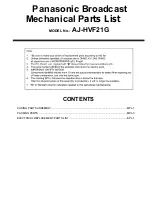
OPTIONAL ACCESSORIES
FOR THE FULL SELECTION OF FANTASEA ACCES
TO THE FANTASEA WEBSITE –
WWW.FANTASEA.COM
EXTERNAL FLASHES
Underwater flashes and strobes were designed to
underwater images. Since light and color are absorbed
all depths, during daylight and night di
underwater flashes also allow for creative lighting,
the shadowing effect caused by the housing lens port when
accessory lenses are mounted on the housing.
The
FRX100 VA R Housing
can be used with underwater slave flashes
sensor which triggers the external flash to fire
Most underwater slave strobes are capable of synchronizing with the internal
cables under certain diving conditions
with the camera built-in flash as long as the strobe and the camera are positioned on the same axis
long as there is not much ambient light available. However, if the strobe slave sensor isn’t pointed directly
at the internal camera flash, or when photographing during daylight
the slave sensor might fail recognizing the output of the internal
cable between the internal camera flash and the slave strobe
diving conditions.
Attaching Fiber Optic Cables to the Housing
1.
When installed on the housing, the fiber optic cable plate allow
fiber optic cables to the housing.
2.
Remove the Fiber Optic Cable Plate from the housing.
installed inside the plate and
3.
The Fiber Optic Plate receives most fiber optic cable brands, including Sea&Sea. In most cases, the
plugs installed inside the plate
plug it comes with. If attaching fiber optic cables which already feature an adaptor
a.
Housing adaptors should first be removed from the fiber optic cable plate. Use a pen or
screwdriver to gently push them out of the plate. The adaptors should be pushed from the
back of the plate and pulled out from its front side. Make sure not to damage the fiber optic
cable plate when doing so.
b.
It’s recommended to apply
installed on your fiber optic cables, so they
FRX100 VA R Housing Instruction Manual
32
OPTIONAL ACCESSORIES
ON OF FANTASEA ACCESSORIES COMPATIBLE WITH THE FRX100 VA R HOUSING
WWW.FANTASEA.COM
were designed to improve the color, lighting and quality of your
. Since light and color are absorbed by water, using an external flash is recommended in
all depths, during daylight and night dives. In addition to retrieving the color and light absorbed by water
allow for creative lighting, assist in reducing the amount of backscatter and prevent
caused by the housing lens port when using the built-in camera
accessory lenses are mounted on the housing.
can be used with underwater slave flashes. These external flashes
s the external flash to fire in sync with the internal camera flash.
strobes are capable of synchronizing with the internal camera
cables under certain diving conditions. They feature a slave sensor that triggers the strobe to fire
as long as the strobe and the camera are positioned on the same axis
long as there is not much ambient light available. However, if the strobe slave sensor isn’t pointed directly
flash, or when photographing during daylight, in clear water and bright conditions,
the slave sensor might fail recognizing the output of the internal camera flash. Connecting a
flash and the slave strobe ensures full synchronization in all angles and
Attaching Fiber Optic Cables to the Housing
on the housing, the fiber optic cable plate allows for an easy attachment of
fiber optic cables to the housing.
Remove the Fiber Optic Cable Plate from the housing. Insert your fingers beneath the adaptors
installed inside the plate and push the plate upwards till it is removed from its slot.
receives most fiber optic cable brands, including Sea&Sea. In most cases, the
plugs installed inside the plate can be removed and the fiber optic cable can be installed using the
If attaching fiber optic cables which already feature an adaptor
Housing adaptors should first be removed from the fiber optic cable plate. Use a pen or
o gently push them out of the plate. The adaptors should be pushed from the
back of the plate and pulled out from its front side. Make sure not to damage the fiber optic
cable plate when doing so.
to apply some silicone grease on the small o-rings of th
installed on your fiber optic cables, so they can be installed and removed more easily.
Instruction Manual 20200225
HOUSING, PLEASE REFER
, lighting and quality of your
using an external flash is recommended in
o retrieving the color and light absorbed by water,
assist in reducing the amount of backscatter and prevent
camera flash, especially when
external flashes feature a slave
camera flash without any
. They feature a slave sensor that triggers the strobe to fire in sync
as long as the strobe and the camera are positioned on the same axis and as
long as there is not much ambient light available. However, if the strobe slave sensor isn’t pointed directly
, in clear water and bright conditions,
flash. Connecting a fiber optic
synchronization in all angles and
for an easy attachment of up to 2
your fingers beneath the adaptors
the plate upwards till it is removed from its slot.
receives most fiber optic cable brands, including Sea&Sea. In most cases, the
can be installed using the
If attaching fiber optic cables which already feature an adaptor:
Housing adaptors should first be removed from the fiber optic cable plate. Use a pen or
o gently push them out of the plate. The adaptors should be pushed from the
back of the plate and pulled out from its front side. Make sure not to damage the fiber optic
rings of the adaptors
and removed more easily.






































